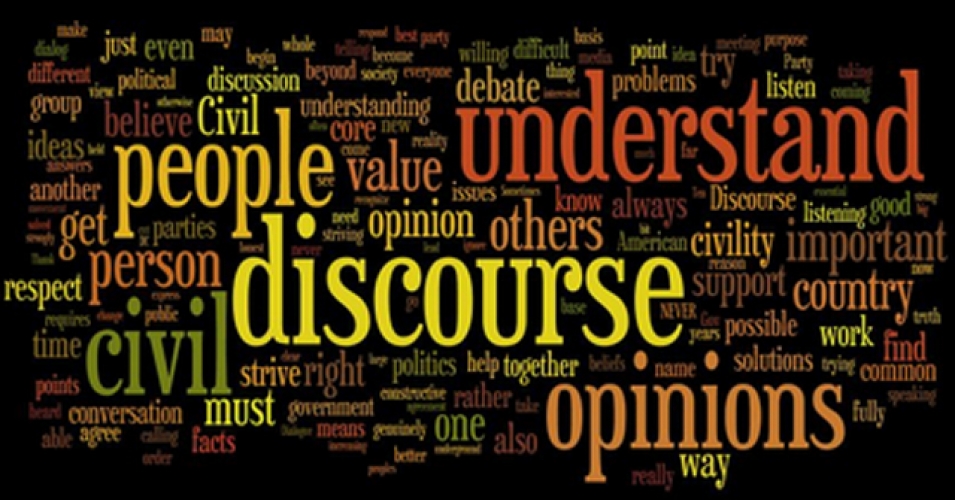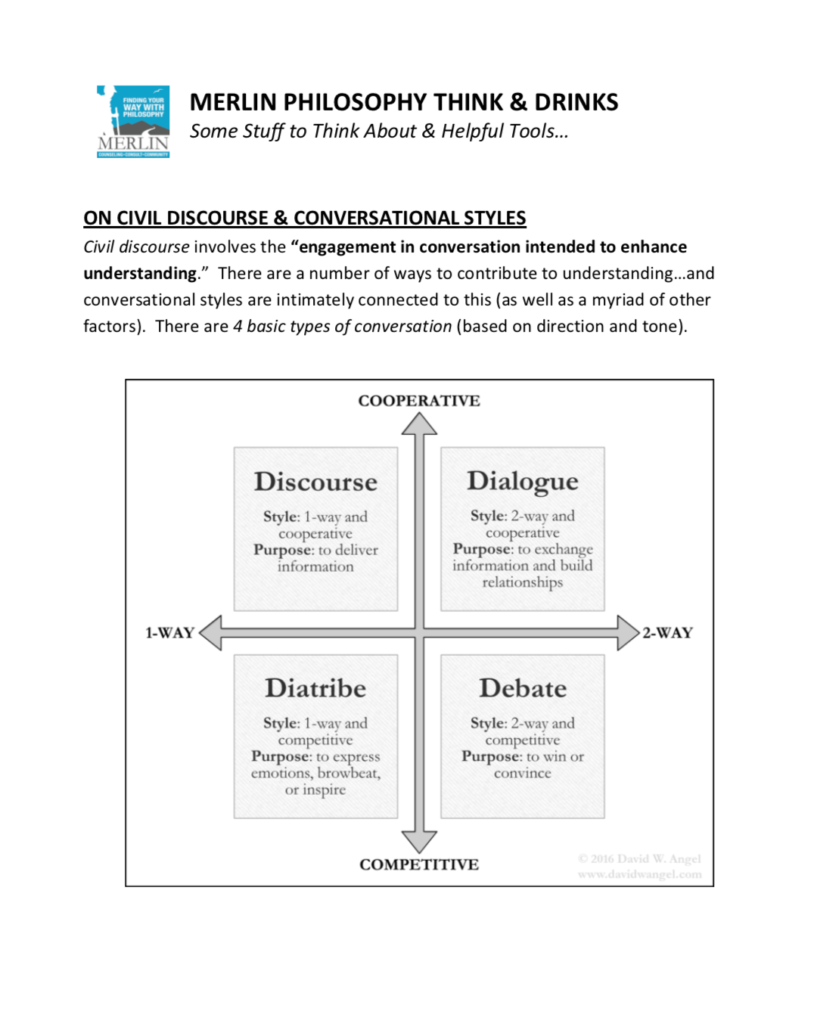
After three summer sessions exploring and discussing the moral dimensions of homelessness, our November Think & Drink marked a return to our normal gathering structure and dialogic style. After a discussion about civil discourse and conversational style — including some of the methodologies involved in Socratic dialogue — our group posed four possible questions.
On Civil Discourse & Dialogue
Questions Thrown into the Ring
-
Are there moral limits to free speech?
-
When you know someone supports a viewpoint or perspective that is fundamentally opposed to your own, is civility and remaining close an option? Even if it is, should this be something for which we strive?
-
How do we navigate (and/or survive) tribalism?
-
Are we morally obligated to let others know when (& why) they might be grossly in error about x, y, or x?
The Question We Selected as a Group
-
When you know someone supports a viewpoint or perspective that is fundamentally opposed to your own, is civility and remaining close an option? Should it be? And…because it was closely related to the former query…do we have a moral obligation to let others know when (& why) they are grossly in error?
What Philosophical Underpinnings this Involved
-
Social conventions, norms, and behaviors
-
Rights & Responsibilities
-
Values
-
And more….
Thank you to the Philosophy Learning & Teaching Organization (PLATO) for supporting philosophy in the community and helping us bring activities like these to the Helena community!

